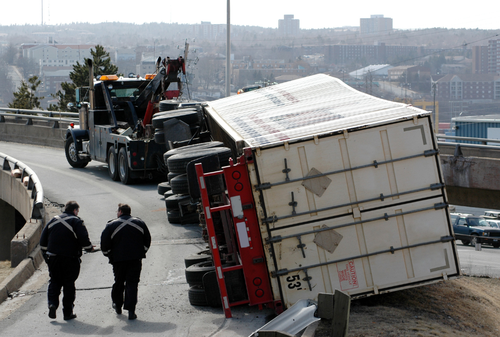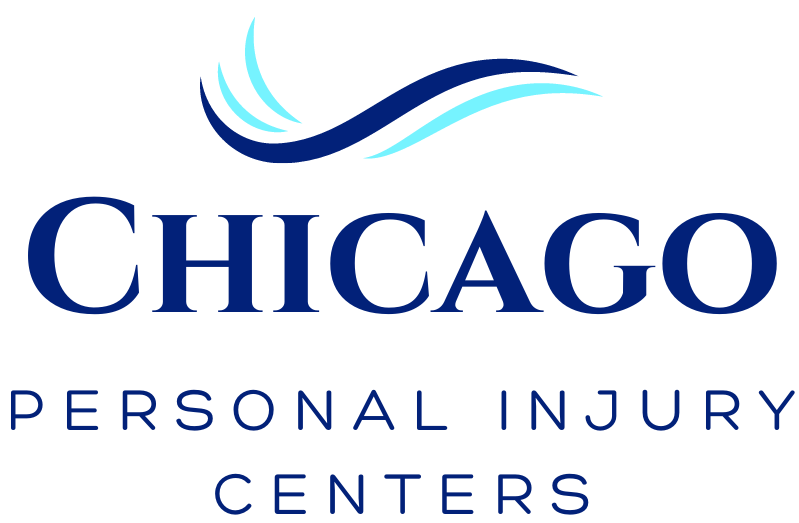Truck accidents are a serious public health concern, often resulting in catastrophic injuries. The immense size and weight of commercial trucks make collisions particularly dangerous for occupants of smaller vehicles.
Given the potential severity of these accidents, it’s crucial to understand common injuries to recognize symptoms promptly and seek appropriate medical care. In this post, Chicago Personal Injury Centers will outline five prevalent injuries sustained in truck accidents, discussing their symptoms, diagnosis, and treatment options.
1. Traumatic Brain Injuries (TBIs)
Traumatic Brain Injuries are a frequent and serious consequence of accidents caused by large vehicles like trucks. These types of injuries are experienced when the brain sustains a significant impact or jolt, leading to varying degrees of brain function disruption.
TBIs range from mild concussions to severe brain damage and can have long-lasting effects on an individual’s cognitive and physical abilities.
Common symptoms of TBIs include:
- Headaches
- Dizziness
- Confusion
- Memory loss
- Nausea and vomiting
- Sensitivity to light and sound
Diagnosis
Diagnosing TBIs typically involves imaging tests such as CT (Computed Tomography) scans and MRIs (Magnetic Resonance Imaging) to assess the extent of the injury. Additionally, neurological evaluations and cognitive assessments help determine the injury’s impact on brain function.
2. Spinal Cord Injuries
Spinal cord injuries are another severe outcome of truck accidents, often leading to partial or total paralysis, depending on the injury’s location and extent. These injuries can disrupt the brain’s communication with the rest of the body, affecting movement, sensation, and bodily functions.
Symptoms of spinal cord injuries may include:
- Loss of movement
- Loss of sensation, including the ability to feel heat, cold, and touch
- Chronic pain or an extreme stinging sensation resulting from nerve damage
Diagnosis
Diagnosis involves a combination of physical exams, X-rays, MRIs, and neurological exams to determine the injury’s location and severity. These tests help in planning the appropriate treatment and rehabilitation strategies.
3. Fractures and Broken Bones
Fractures and broken bones are common injuries in truck accidents due to the high-impact forces involved. These injuries can range from simple fractures to complex breaks that require surgical intervention.
Common symptoms of fractures and broken bones include:
- Intense pain at the injury site
- Swelling and bruising
- Inability to move the affected limb
- Visible deformity in severe cases
Diagnosis
Diagnosis typically involves physical examinations and imaging tests such as X-rays to identify the location and extent of the fractures. In some cases, CT scans may be used for more detailed imaging.
4. Whiplash and Neck Injuries
Whiplash and other neck injuries are also apparent in truck accidents due to the sudden and forceful movement of the head and neck. Whiplash occurs when the neck is rapidly jerked back and forth, causing strain on the muscles and ligaments.
Symptoms of whiplash and neck injuries include:
- Neck pain
- Stiffness in the neck region
- Headaches, usually originating from the base of the skull
- Dizziness and fatigue
- Pain or tenderness in the shoulders, upper back, or arms
Diagnosis
Diagnosis involves a combination of physical exams and imaging tests such as X-rays, CT scans, and MRIs to assess the extent of the injury and rule out other conditions such as fractures.
5. Internal Injuries
Internal injuries, including organ damage and internal bleeding, are serious concerns following truck accidents. These injuries may not be immediately apparent but can be life-threatening without prompt medical intervention.
Symptoms of internal injuries include:
- Abdominal pain and swelling
- Dizziness and fainting
- Deep purple bruising
- Blood in urine or stool
Diagnosis
Immediate medical attention is crucial for internal injuries. Diagnostic tests such as ultrasounds, CT scans, and blood tests are used to detect internal bleeding and organ damage, guiding emergency treatment.
The Different Treatment Options
The nature and severity of injuries sustained in a truck accident will determine the specific course of treatment. Chicago Personal Injury Center offers a comprehensive range of services designed to address the unique challenges faced by accident victims.
Physical Therapy
Physical therapy is a cornerstone of recovery for many truck accident injuries. It focuses on restoring strength, flexibility, and mobility to affected areas. Our skilled therapists develop individualized treatment plans to address specific needs, whether it’s regaining range of motion in a stiff neck, improving balance after a head injury, or rebuilding strength in a fractured limb.
Pain Management
Chronic pain is a common challenge for truck accident survivors. Our team employs a variety of techniques to alleviate discomfort and improve quality of life. This may include medication, physical therapy modalities, injections, and other interventional procedures. A comprehensive pain management plan is essential for optimal recovery and well-being.
Massage Therapy
Massage therapy is an effective treatment for various injuries following a truck accident. It can help alleviate muscle tension, reduce pain, and improve circulation in injured areas, promoting faster healing.
Techniques such as deep tissue massage, trigger point therapy, and myofascial release are commonly used to address specific injury-related issues like whiplash, back pain, and soft tissue injuries. By incorporating massage therapy into a comprehensive treatment plan, accident victims can experience enhanced mobility, reduced stress, and improved overall well-being.
Injections
Injections are commonly used to treat a variety of injuries following a truck accident. For instance, corticosteroid injections can reduce inflammation and alleviate pain in injured joints or muscles, providing relief for conditions such as whiplash, back pain, and joint injuries.
Additionally, nerve block injections may be administered to manage chronic pain by interrupting pain signals from affected nerves. These treatments can significantly enhance mobility and improve the quality of life for accident victims as part of a comprehensive recovery plan.
Specialized Care
Depending on the specific injuries sustained, additional specialized care may be required. This might include orthopedic surgery for fractures, neurological rehabilitation for spinal cord injuries, or brain injury rehabilitation for TBIs. Our treatment center works closely with a network of specialists to ensure patients receive the highest level of care.
Seek Timely Truck Accident Injury Treatment in Chicago!
Truck accidents can have devastating consequences, resulting in a variety of injuries. Understanding the common types of injuries sustained in these accidents is crucial for early symptom recognition and seeking appropriate medical care. If you or a loved one has been involved in a truck accident, it’s essential to seek immediate medical attention.
Our experienced team at Chicago Personal Injury Center is committed to providing compassionate and comprehensive care. We offer a personalized treatment plan tailored to your specific needs. Contact us today by calling (773) 482-5800 for a consultation.

